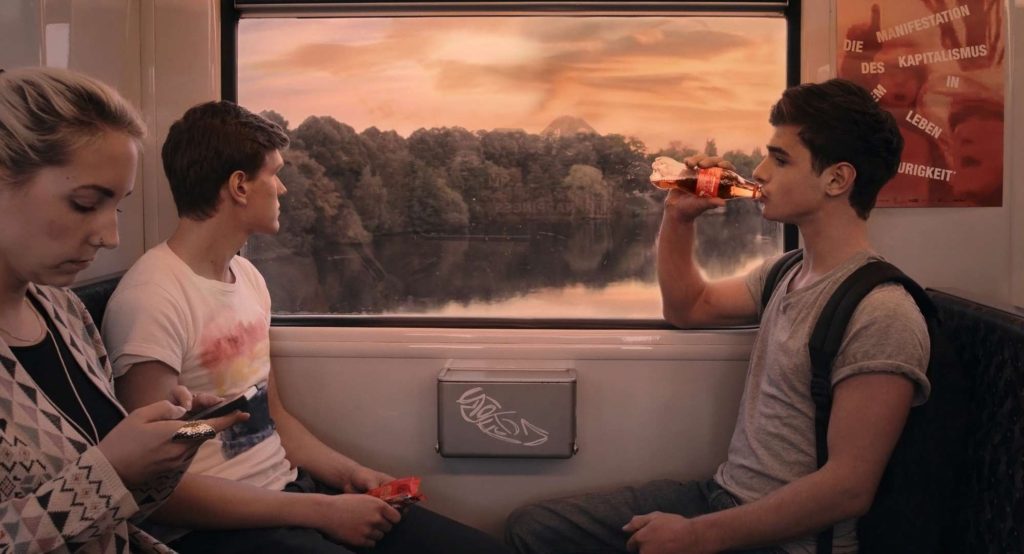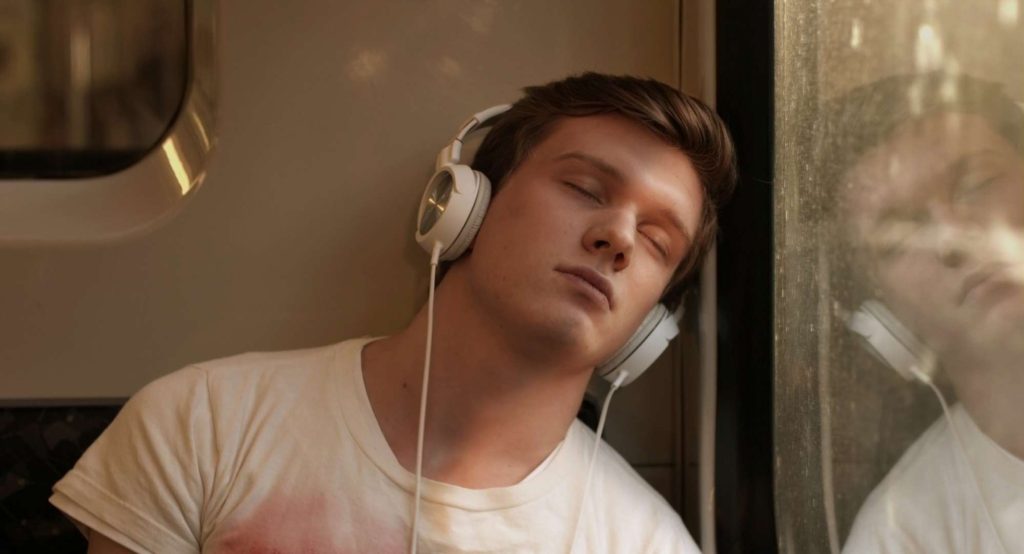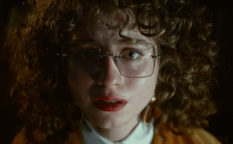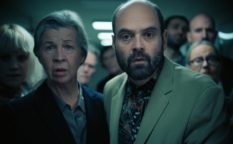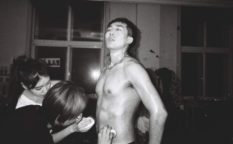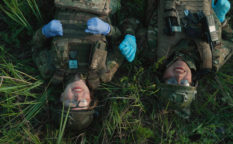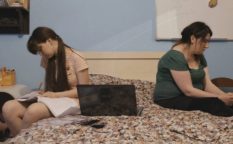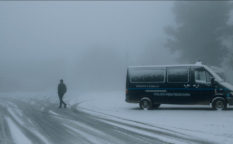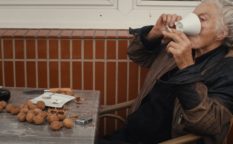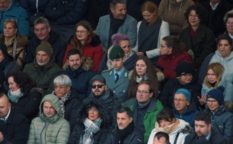Nicolaas Schmidt: “In First Time, the negotiated subject is at the same time the method of work”
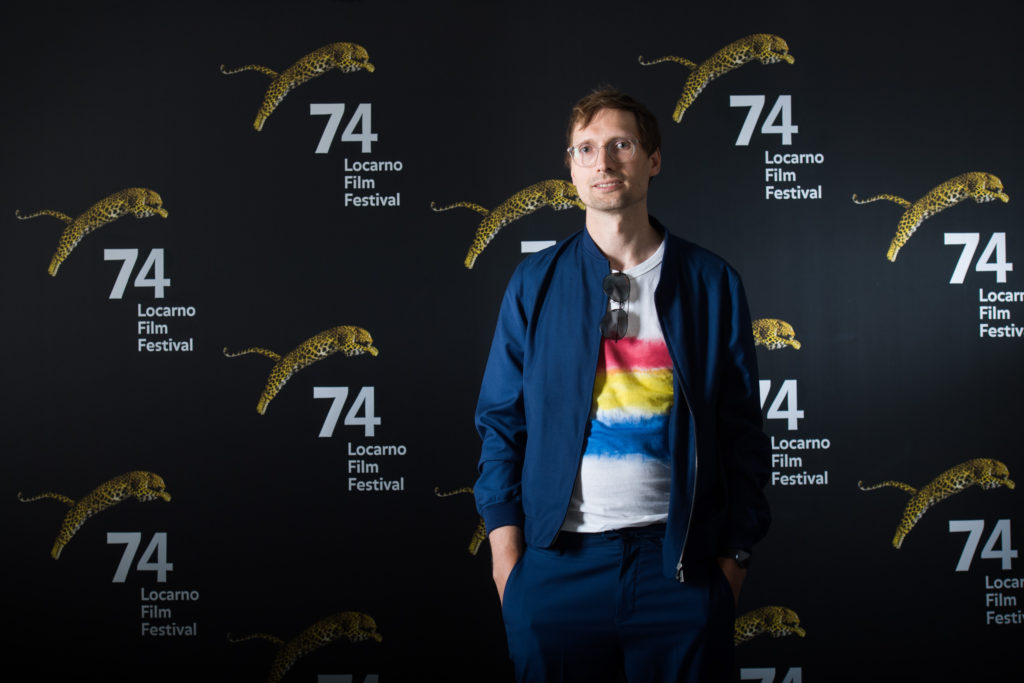
In his director’s statement for Locarno film festival, the German filmmaker, video- and conceptual artist Nicolaas Schmidt calls his fifteenth short First Time [The Time for All but Sunset – VIOLET] a ‘common sensations music movie’, and there are probably no better words to describe it.
It is a uniquely crafted short done with intelligence and heart, focused on an accidental encounter between two boys on a tram during which a bond is created without as much as one word between them being exchanged. There is a fraction of moment that connects the film’s lengthy introduction composed of the old emotion-boosting Coca-Cola ads, and edited to form a hilariously funny commentary on the ideal of love, with the main narrative. Its effect will hang on for a while, provoking the audience to reflect upon the birth of emotions and their unpredictable nature.
Unable to meet in person, we conducted the interview with Schmidt via mail shortly after it was announced that First Time… was given Special Mention in Locarno.
Interesting are the introductory minutes assembled from different scenes from Coca-Cola TV ads. Please tell us something about the motives to use the commercial “boosters of happiness” to establish the connection with the second part of the movie
I liked the contrast that created a field of tension between life in advertisement, with the coke advert, and life in reality, on the commute itself.Even the advert itself I find wonderfully ambivalent. I wanted to reinforce this with the everlasting collage of the various advertising sequences – the youth / life / love, which was indicated as authenticity in the 80s I guess. From today’s point of view it simply seems over the top and has a rather ironic effect. I just love any kind of ambivalence.
Music plays the crucial part in your narrative. Can you tell us something about bridging the inside and outside world through music: the lyrics of the songs/ commercials are the only “script”. The rest of the story is sunken in silence
In FIRST TIME the negotiated subject is at the same time the method of work. The film refers to an everyday experience: inwardness and minimal „privacy“ amid public space by simply putting on headphones with music. However, there is no chasm between the cocoon created in this way and the „outside world,“ but rather movements of transition: The music perceived through the headphones colorizes the outside world. The music connects with people and objects outside. It often seems as if one were standing in the middle of sceneries designed and staged for one‘s own songs. Invisibly, the processes interlock like the Maltese cross drive of the cinematograph. First Time transfers this experience into a cinematic one and enriches it with a narrative miniature – a love story.The decisive factor for the cinematic design is not the script in dialogues but a sequence of musical pieces: This is what organizes the play. a playlist whose components are interwoven rather than being merely compiled. The film interlocks image and music in a unique way. Neither do the images illustrate the music, nor does the music simply reinforce the moods and images. instead, the relationship between image and music is reciprocal: the film is created because both work through each other – no synthesis – not kitsch.
Similarly, the static of the train compartment stands in contrast with the moving images outside.
That is also a nice contrast which creates a tension, but that was already directly related to the image concept.
How much of the freedom did you have regarding the filming and positioning of the camera? And how much was improvised?
I find formal concepts interesting because of their limitations. Too much freedom is not a good thing (less is more). So a fixed camera position was clear to me from the beginning, because I wanted an „eternal“ static field of view. Improvisation came in when the two actors took on their roles. They were not exactly told how to act, but rather what to feel and largely improvised their expressions and minimalistic movements accordingly.
How would you describe your film in 2 sentences to the audence who hasn’t seen it yet?
I would like to quote a line from Robin Becks song First Time: “I dont think there are words to describe the sensations”.
What was the most important aspect for you in the making of this movie?
The Discovery of the track ‘Delta Roth’ by Jason Roumkos, a former classmate and friend. I listened to that track again and again. It calmed me with its repetitive and melancholic easyness – perfect soundtrack for a train ride.And of course the support by MOIN Filmförderung Hamburg Schleswig-Holstein.
Who are some of the directors that you admire?
Gus van Sant, Philippe Garrel, Corinna Schnitt. And I deeply adore the characters in Maren Ade’s films. As I am working right now on my first feature film. I have a new focus: showing the development of characters without a cynical or ironical distance but also not too pathetic or even worse, moral and pseudo-critical. Things are never simply dichotomic.
Film stills from Nicolaas Schmidt’s ‘common sensations music movie’ FIRST TIME [The Time for All but Sunset – VIOLET]. Courtesy of Locarno Film Festival

